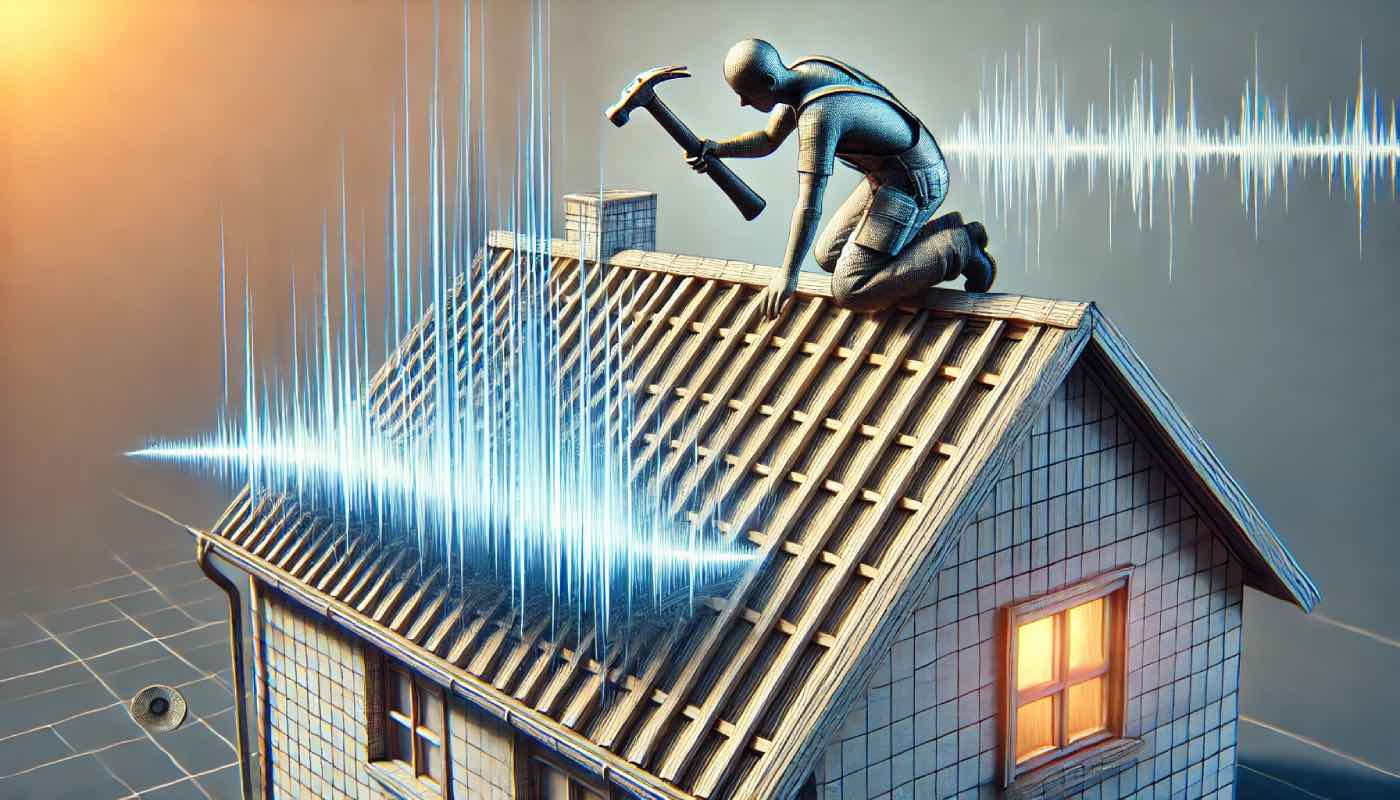No one wants to think about being scammed—especially when it comes to something as crucial as your roof. But unfortunately, roofing scams are more common than you might expect. They prey on stress, urgency, and trust. And once the damage is done, it’s often expensive and hard to undo.
So how do you protect yourself? It starts with knowing what to look out for.
The Most Common Roofing Scams
Not all scams are dramatic or obvious. In fact, some look almost legitimate—until it’s too late. These are the types homeowners run into most often.
Storm Chasers
After a big storm, it’s pretty common to have roofers show up in your neighborhood offering free inspections or quick repairs. Some might be legit—but many are what people call “storm chasers.” They travel from place to place, following bad weather, and show up when homeowners are most stressed and vulnerable. It’s exactly the kind of situation where you need to beware of roofing scams. Scammers know you’re dealing with damage and just want things fixed fast—and they use that urgency to their advantage.
These contractors often:
- Do subpar work that won’t hold up
- Pressure you into signing contracts fast
- Disappear before problems start showing up
Free Inspection Trick
This one starts off sounding helpful. A roofer offers a free inspection—no strings attached. But once they’re on your roof, things get shady. Some scammers will cause damage during the inspection just to make it look like you need repairs. Others might exaggerate the problem entirely.
Suddenly, your “routine check” turns into a high-stakes repair with urgent warnings and a price tag you weren’t expecting.
Upfront Payment Pressure
If someone asks for a large down payment—or worse, the full amount—before doing any real work, that’s a red flag. Some scammers disappear once they have your money. Others might start the job, leave it unfinished, or do the bare minimum just to claim they followed through.
Low-Ball Offers
Getting a cheap quote feels like a win, especially when repairs are unexpected. But an unusually low price can signal cut corners, unlicensed workers, or low-quality materials. In the end, you often end up spending more to fix what they didn’t do right the first time.
What Makes You a Target?
Scammers often look for specific vulnerabilities. And no, it’s not about being gullible. It’s about timing, stress, and urgency.
You’re more likely to be targeted if:
- There’s just been a storm in your area
- You’re a new homeowner
- You’re elderly or live alone
- Your roof is visibly damaged or aging
They know when and where to strike—and often use urgency to push you into a quick decision.
Smart Ways to Protect Yourself
You don’t need to be an expert in roofing to avoid getting scammed. A few smart habits go a long way.
Always get more than one quote
If someone’s offer seems unusually high or low, you’ll spot it quickly when you have comparisons.
Ask for proof
That means licenses, insurance, and references. A trustworthy roofer won’t hesitate to provide these.
Don’t be rushed
High-pressure sales tactics are a red flag. Take your time reviewing contracts and estimates.
Get everything in writing
Verbal promises mean nothing if the work isn’t done properly. Make sure the scope of work, materials, cost, and timeline are clearly spelled out.
Never pay in full upfront
A small deposit is normal. Paying the full amount before work starts? That’s a gamble you don’t want to take.
Red Flags to Watch Out For
Sometimes it’s not what they say—it’s how they act. Here are a few behavioral signs that should raise eyebrows:
- Unmarked vehicles – Professionals usually have company-branded trucks or at least business contact info visible.
- No physical address – If the business doesn’t have a location you can visit or verify, think twice.
- Pushy sales tactics – Whether it’s “sign now or lose the deal” or “this price is only good today,” that pressure is designed to override your better judgment.
- Refusal to show credentials – If they dodge questions about licensing or insurance, that’s a big red flag.
What to Do If You’ve Been Scammed
If you suspect you’ve been taken advantage of, don’t stay silent. It can feel embarrassing, but acting quickly can help limit the damage—and possibly help others avoid the same trap.
Here’s what you can do:
- Stop payment if possible, especially if work hasn’t started yet.
- Document everything – Keep records of contracts, communications, and photos.
- Report it – File complaints with local consumer protection agencies or licensing boards.
- Share your experience – Warning others (especially neighbors) can help stop the scam from spreading.
A Bit of Caution Goes a Long Way
You don’t need to live in fear of every contractor who knocks on your door. Most roofers out there are doing honest work. But being cautious—especially after a storm or when your roof is showing wear—can save you a lot of stress and money.
Take your time. Ask questions. Trust your gut.
When it comes to your home, you deserve quality work without the worry of getting scammed. And now, you know how to spot the warning signs before it’s too late.
